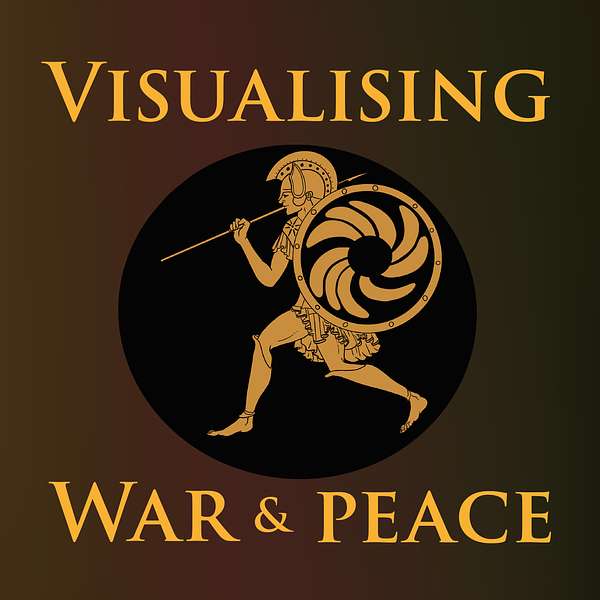
Visualising War and Peace
How do war stories work? And what do they do to us? Join University of St Andrews historian Alice König and colleagues as they explore how war and peace get presented in art, text, film and music. With the help of expert guests, they unpick conflict stories from all sorts of different periods and places. And they ask how the tales we tell and the pictures we paint of peace and war influence us as individuals and shape the societies we live in.
Visualising War and Peace
Documenting war and promoting peace in Mosul with Omar Mohammed / Mosul Eye
In this episode, Alice interviews historian Dr Omar Mohammed, founder of the acclaimed Mosul Eye blog. When ISIS captured Mosul in 2014, Omar began posting regular updates to keep people informed and to counter misinformation – and his blog became a vital source of information both for those within the city and the wider world. He posted regularly throughout the occupation and liberation of Mosul, and has since turned his attention to Mosul’s recovery, using the blog to promote cross-cultural understanding as well as raising Mosul’s profile internationally. Mosul Eye has a lot to teach us about representations of conflict, particularly those that are produced while a war is ongoing, and it is a real testament to what the public documentation of a war can achieve, in the aftermath as well as during a conflict.
In the podcast, Omar explains that he began keeping a diary to document what life was like on the ground during conflict after the US-led invasion of Iraq in 2003. However, it was only in 2014 when ISIS/Daesh captured Mosul, that he started blogging publicly, with no idea at the time how long his blog - or the occupation - would last. As a historian, he wanted to provide the people of Mosul and wider audiences with accurate accounts of events as they were unfolding in real time; but he also used the blog to preserve the names of victims and build up a reliable record for posterity, so that future generations could understand what went on. Crucially, his blog posts narrated many small, everyday details, painting a holistic picture of the conflict rather than focusing on major events. His correction of fake news and exposure of atrocities meant that he and the blog were targeted by Daesh, but he persevered despite the risks, viewing his writing as a way to fight back.
Over time, Mosul Eye became so well known that major news organisations turned to it to verify or flesh out their stories, and Omar was able to leverage the growing influence he had to help rescue people and families from the city and collect books for the University's stricken library. Since Mosul's liberation, Omar has used his position to put Mosul on the global map in positive ways, building bridges between different communities and kick-starting a major tree-planting programme, to help the people of Mosul visualise a greener, more peaceful future and to connect them to wider efforts to address climate change. His blog has helped him and others to grasp the profound and sometimes unseen destruction that war brings; but it also testifies to the power of history writing and digital media to promote peace, healing and renewal.
Among other questions, Alice asked:
- what prompted Omar to begin blogging as 'Mosul Eye' in 2014 and what his initial goal was
- what aspects of the occupation and liberation he decided to focus on, and why
- how the people of Mosul, the media and the wider international community responded to Mosul Eye
- what role his blog played in the 'information war' which accompanies conflict in the digital age
- how different live blogging is from writing the history of a conflict with the benefit of hindsight
- what role blogging can play in helping people visualise peace/renewal as well as war
We hope you enjoy the episode! To find out more about Mosul Eye, please visit the website. For a version of our podcast with close captions, please use this link. For more information about individuals and their projects, please have a look on the University of St Andrews Visualising War website.
Music composed by Jonathan Young
Sound mixing by Zofia Guertin